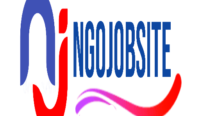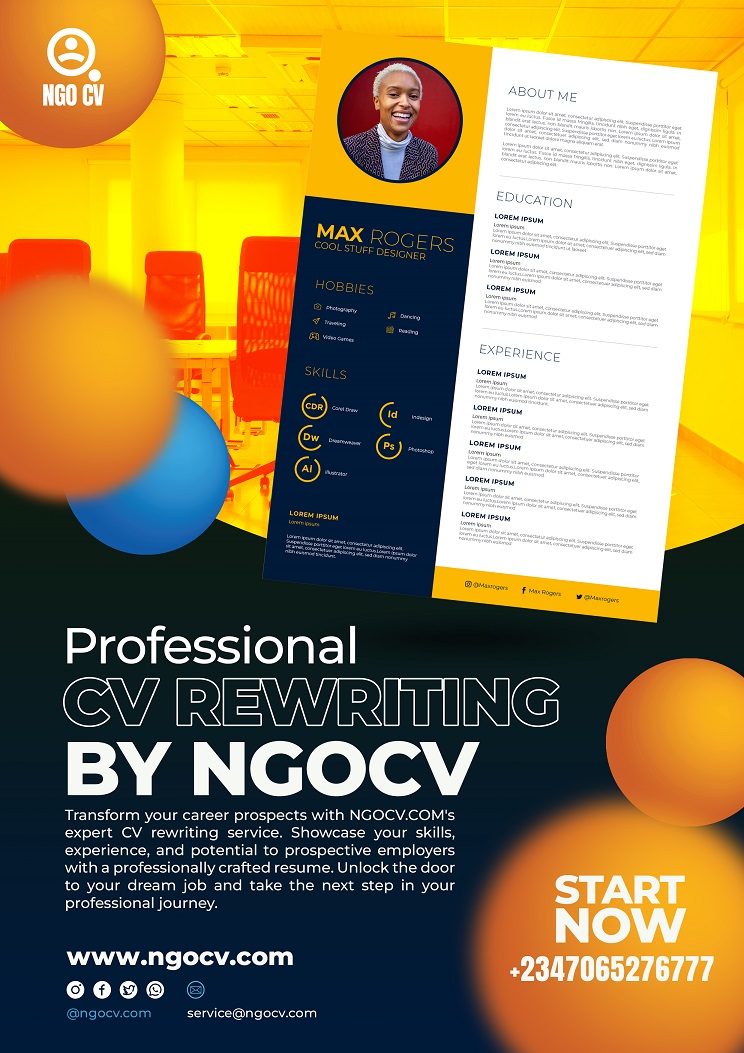UN Women – In July 2010, the United nations General Assembly created UN Women, the United Nations Entity for Gender Equality and the Empowerment of Women. The creation of UN Women came about as part of the UN reform agenda, bringing together resources and mandates for greater impact. It merges and builds on the important work of four previously distinct parts of the UN system (DAW, OSAGI, INSTRAW and UNIFEM), which focused exclusively on gender equality and women’s empowerment.
We are recruiting to fill the position below:
Job Title: National Evaluation Consultant
Location: Nigeria (Home based with some in-country travel)
Post Level: National Consultant
Type of Contract: Individual Contract
Languages Required: English
Expected Duration of Assignment: 6 Week
Start Date: 08-Nov-2021 (date when the selected candidate is expected to start)
Project Description
- The main goal of the project ‘Contributing to the Economic Empowerment of Women in Africa through Climate Smart Agriculture’ is to strengthen women’s agricultural productivity and access to markets in selected agriculture products in Nigeria.
- The project seeks to close the gender gap in agricultural productivity by increasing women’s access to resources. It is expected to reach over 50,000 women across the four countries over three years (2019 to 2021) by providing them with entrepreneurial and financial capacities, affordable technology and value addition, and using information and communications technology (ICT) to increase access to markets and to finance.
- The project is aligned with UN Women’s Development Results Framework 2: “Women, especially those living in poverty and vulnerability, are economically empowered and enabled to reap the benefits of development”.
- The project implementation focuses on four outcomes described in detail below. The outcomes aim to increase women’s agricultural productivity using CSA techniques and approaches; support women in value addition of selected agricultural products and increase access to market and finance.
| Outcomes | Outputs |
| 1.Women have increased their productivity in a changing climate | 1.1.Women’s access to labor and time-saving equipment and services increased |
| 1.2.Women’s access to climate-smart non-labour agricultural inputs improved | |
| 1.3.Access to climate–resilient agricultural extension services and information for women and men farmers improved | |
| 1.4.Socio-cultural barriers (including gender-based violence) reduced through policy and advocacy (including engaging men at household level) to increase agriculture productivity and women’s equal land rights | |
| 2. Opportunities for organized women to move up the value chain are provided | 2.1Women’s shift to high value agricultural enterprises (selected crops, fisheries, animal husbandry etc) and inclusion in green agricultural value chains at the national, regional and international levels achieved |
| 2.2Local infrastructure developed to improve access to markets, reduce labour, and save time for women value chain actors | |
| 2.3Capacity of women value chain organizations for production and marketing is increased | |
| 3. Using ICT platforms (BfW) for increased access to markets and finance for women | 3.1Deploy the buyfromwomen digital platform to connect women farmers to large scale buyers of agricultural products |
| 3.2 Information stored in the BfW platform is being used as a form of collateral for women’s access to finance | |
| 3.3Link women to financial institutions providing innovative financing in CSA | |
| 4: The Multi-Country Project is coordinated and implemented with a focus on ‘research for development’ and documenting lessons learned | 4.1UN Women Country offices, and agricultural research institutions in the respective countries and at regional level engaged to increase research on gender and CSA in the region |
| 4.2Regional and national institutional, policy and legal frameworks that will be key enablers to facilitate women’s engagement in CSA evaluated for their effectiveness | |
| 4.3South-South cooperation and learning among participating countries of the multi-country proposal and other countries in the region is fostered |
Summary of Activities
The programme activities included:
- Situation Analysis and identification of groups/cooperatives, and of adequate technologies;
- Strengthening women’s positions in producer organizations;
- Increasing availability of production resources, processing and storage facilities and agricultural equipment;
- Supporting, through trainings and other support services, women farmers’ access to entrepreneurial, organizational and technical skills and value addition techniques;
- Developing capacity of institutions/private sector organizations involved in providing inputs to women in agriculture;
- Linking women to markets (BfW) and finance institutions and structures; and
- Conducting awareness, sensitization and communication campaigns.
Evaluation Objectives
- The overall objective this final evaluation is to assess the achievement of programme results and performance of the above-described intervention.
- The evaluation should measure and provide robust empirical evidence related to the success and results of the CSA interventions (both intended and unintended). The evaluation will assess changes in outcomes observed, the mechanisms that delivered the observed changes, key features of these mechanisms and determine to what extent these can be attributed to the interventions.
- The specific evaluation objectives are as follows:
- Analyze the relevance of the implementation strategy and approaches of the “Contributing to the Economic Empowerment of Women in Africa through Climate Smart Agriculture” project;
- Assess organizational efficiency in progressing towards the achievement of the project’s results as defined in the intervention;
- Validate the project impact in terms of achievements and/or weaknesses toward the outcome and outputs;
- Assess the potential for sustainability of the results achieved by the project;
- Document lessons learned, best practices, and challenges to inform future work of UN Women on women’s economic empowerment;
- Access the implication of COVID-19 in the entire project implementation;
- Identify strategies for replication and up-scaling of the programme’s best practices;
- Provide actionable recommendations for the implementation of the second phase of the project and maximize ownership by partners in the countries covered by the project in order to foster sustainability of the intervention;
- To assess how the project and its results relate and contribute to commitments and achievement of Sustainable Development Goals (SDGs) in Nigeria.
Scope of Work
- The target will be to work with ‘women in agriculture’ cooperative groups in 2 states of Niger and Ebonyi, the project facilitates a transition from the more common ‘subsistence farming’ approach adopted by many women farmers to a more holistic ‘commodity value chain’ approach, by women in the production of shea and rice.
- The evaluation will cover UN Women’s work in Nigeria, where the project is being implemented; including in the national capitals and the target project regions to collect data as defined by the agreed evaluation work-plan. In the context of the COVID-19 pandemic, UN Women does not anticipate any international travel, however local travel may be undertaken by national consultants in the scope of this assignment.
- The evaluation will examine all the relevant documents of the Project, including results framework/logical framework of the project, its Monitoring and Evaluation Plan, annual work plan, semi-annual and annual reports to the donor, knowledge products produced in the frameworks of the project, etc.
- Under the overall leadership of the Regional Policy Specialist, Women’s Economic Empowerment (ESARO) and the guidance of the Lead International Evaluator and the Women’s Economic Empowerment Evaluation Consultant, the national consultant will provide national context inputs to the evaluation including: inputs to the evaluation methodology; leading the data collection and country specific analysis and the drafting of the country specific chapters.
Duties and Responsibilities
The National evaluation consultant will:
- Provide technical and methodological support to the evaluation team lead and, the International WEE Evaluator in designing and delivering appropriate evaluation design and methodology;
- Provide information relevant to the national context to guide the evaluation;
- Lead in country specific data collection for the evaluation;
- Support the team leader in ensuring the quality assurance of all documents submitted to UN Women including ensuring the quality of the evaluation;
- Ensure evaluation standards are met to the extent possible.
Required Skills and Experience
Education:
- At least Master’s Degree or its equivalent in one or more of the following fields: Economics, Social Sciences, Development Studies, Gender and Agricultural Studies.
Experience:
- At least five years experience of conducting evaluations in the area of GEWE and development;
- Experience conducting complex evaluations and/or multi-stakeholder evaluations preferably on WEE;
- Knowledge and experience of gender-responsive and human rights-based approaches to evaluation;
- Experience in designing and leading/participating in gender-responsive evaluations and/or applied research utilizing a wide range of approaches and methods;
- Experience working with participatory approaches and demonstrated ability to negotiate amongst a wide range of stakeholders;
- Experience in working with the UN/multilateral/bilateral institutions.
Language Requirements:
- Fluency in English;
- Fluency in in Ibo and/or Hausa is desirable.
Competencies
Core Values:
- Respect for Diversity
- Integrity
- Professionalism.
Core Competencies:
- Awareness and Sensitivity Regarding Gender Issues
- Accountability
- Creative Problem Solving
- Effective Communication
- Inclusive Collaboration
- Stakeholder Engagement
- Leading by Example.
Functional Competencies:
- Strong technical knowledge of the different components of evaluation, including evaluation design, data collection and analysis, and reporting;
- Substantive knowledge of gender-responsive evaluation, respective methodological approaches;
- Ability to synthesize evaluative information and to write clear, concise, and logical evaluation reports;
- Excellent ability to communicate with a diverse range of stakeholders;
- Ability to plan and manage tasks and supervise evaluation teams;
- Excellent oral and written communication skills with ability to produce well written reports in English;
- Knowledge of UN system, practices, procedures, including UN Women and UNDP programme modalities will be an asset.
Application Closing Date
27th October, 2021 (Midnight New York, USA).
Method of Application
Interested and qualified candidates should:
Click here to apply online
Note
- Open to Nigerian Nationals Only.
- UNWOMEN is committed to achieving workforce diversity in terms of gender, nationality and culture. Individuals from minority groups, indigenous groups and persons with disabilities are equally encouraged to apply.
- All applications will be treated with the strictest confidence.




